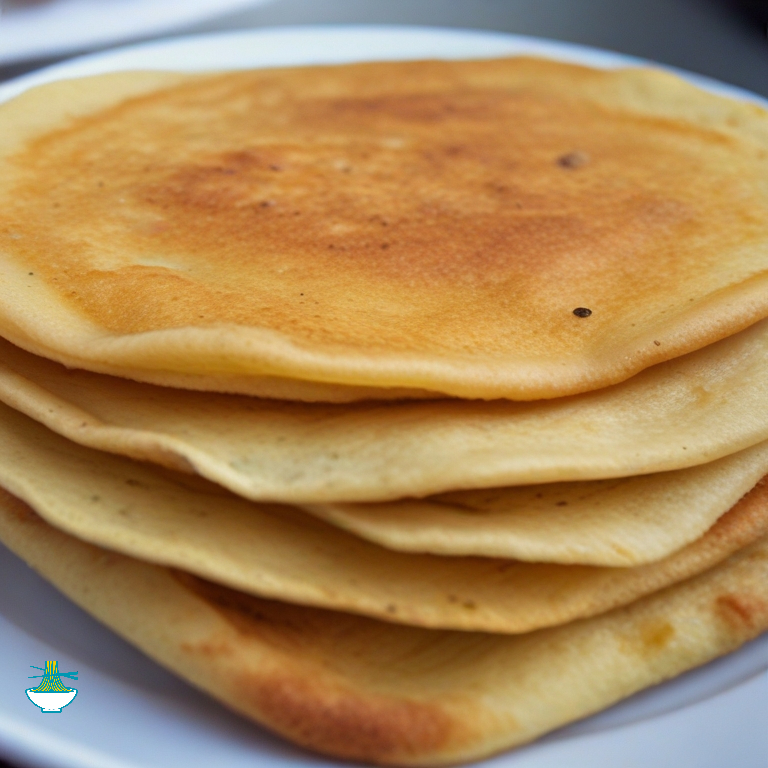Embark on a gastronomic journey through the vibrant streets of Gibraltar with Calentita, a cherished dish deeply rooted in its cultural tapestry. "Savoring Gibraltar's Culinary Heritage: The Delightful Calentita Experience" invites you to uncover the secrets behind this traditional delicacy. Dive into the rich history and diverse influences that have shaped Calentita into the beloved culinary gem it is today. From its humble origins to its modern-day adaptations, explore the tantalizing flavors and aromas that define this savory sensation. Whether you're a seasoned food enthusiast or a curious traveler eager to indulge in local delights, this immersive experience promises a taste of Gibraltar's unique identity through the irresistible allure of Calentita. Join us and discover why this iconic dish continues to captivate hearts and palates alike, making it an essential part of Gibraltar's cultural heritage.
Here's a recipe for Gibraltar Calentita:
Ingredients:
- 2 cups chickpea flour
- 2 1/2 cups water
- 1 teaspoon salt
- 1/2 teaspoon ground cumin
- 1/2 teaspoon ground black pepper
- 1/4 cup olive oil, plus extra for greasing
- Optional toppings: sliced green onions, chopped tomatoes, olives, or any other preferred toppings

Instructions:
1- Preheat your oven to 400°F (200°C). Lightly grease a baking dish or a shallow ovenproof skillet with olive oil.
2- In a large mixing bowl, whisk together the chickpea flour, water, salt, cumin, and black pepper until you have a smooth batter.
3- Heat the 1/4 cup of olive oil in a skillet over medium heat. Once hot, pour about 1/4 cup of the batter into the skillet, spreading it out evenly to form a thin pancake. Cook for 2-3 minutes on each side, or until golden brown and set. Repeat with the remaining batter, adding more oil to the skillet as needed.
4- Once all the pancakes are cooked, transfer them to the greased baking dish, stacking them if necessary. Place the dish in the preheated oven and bake for 10-15 minutes, or until the Calentita is firm and set.
5- Remove the Calentita from the oven and let it cool slightly before slicing into wedges or squares.
6- Serve the Calentita warm, garnished with your choice of toppings if desired. Enjoy as a snack or street food, savoring the flavors of Gibraltar's culinary heritage!
Feel free to adjust the seasoning and toppings according to your taste preferences. Enjoy your homemade Gibraltar Calentita!
Nutritional Values:
Here are the approximate nutritional values for the main ingredients used in the Gibraltar Calentita recipe:
Chickpea flour (per 1 cup):
- Calories: 356
- Protein: 20g
- Fat: 6g
- Carbohydrates: 53g
- Fiber: 10g
benefits:
- High in protein: Supports muscle repair and growth, helps in maintaining satiety.
- Rich in fiber: Promotes digestive health, aids in regulating blood sugar levels and cholesterol.
- Good source of vitamins and minerals: Provides essential nutrients like folate, iron, magnesium, and zinc.
Olive oil (per 1 tablespoon):
- Calories: 119
- Fat: 14g
- Carbohydrates: 0g
- Protein: 0g
benefits:
- Heart-healthy fats: Contains monounsaturated fats that can lower the risk of heart disease and inflammation.
- Antioxidants: Helps protect cells from damage caused by free radicals, reducing the risk of chronic diseases.
- May support brain health: Some studies suggest that olive oil consumption may improve cognitive function and reduce the risk of cognitive decline.
Please note that these values are approximate and may vary slightly based on the specific brands and variations of the ingredients used. Additionally, the nutritional values for the salt, cumin, black pepper, and optional toppings will depend on the quantities used and can be negligible compared to the main ingredients.


Comments